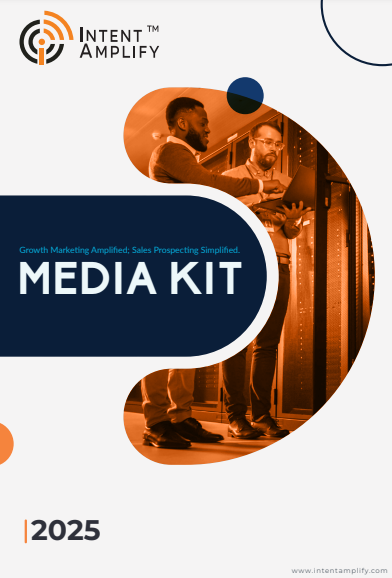
How AI Voice Assistants Are Changing B2B Buying Behavior
- Last updated on: August 21, 2025
The method by which businesses purchase goods and services is changing quickly, with artificial intelligence (AI) at the center of the evolution. AI voice assistants like Amazon Alexa for Business, Google Assistant, and Microsoft Cortana (Retired) are no longer solely for personal use. They are becoming research, decision-making, and transaction assistants for B2B purchases.
Gartner anticipates that the B2B marketplace will be dramatically different from today. They predicted that by 2026, B2B sales professionals will no longer be communicating primarily through email, with more than 50% of B2B queries being made through voice and AI interfaces. With changes of this magnitude, it is evident that AI and voice assistants are shaping enterprise buyer behavior now and will continue to do so into the future.
The Shift in B2B Buyer Behavior
Old-school B2B purchasing involved painstaking manual research by visiting vendors’ websites and then comparing vendors over time. Today, respondents are using voice synonyms to make a quicker and more conversational answer. For example, a purchasing manager might have previously typed into a search bar ‘best cloud security vendors for enterprises’, but would now just ask, for example, ‘Alexa, what cloud security vendors do you recommend for financial institutions?’.
This represents much more than simply how to use voice search. B2B buyers expect the same ease and simplicity that they have at home. Recently, Statista noted that more than 149.8 million people in the U.S. used AI voice assistants monthly in 2024. Business numbers are catching up. Voice search enables AI searchers to access knowledge quickly without clicking through many search results.
Personalization and AI-Powered Recommendations
AI voice assistants have a huge benefit over traditional search engines, with the ability to personalize the interaction. AI provides recommendations to a buyer based on context (e.g., industry, previous questions, size of company).
When a marketing director says to a voice assistant, “What are the best ABM platforms for mid-sized B2B companies?” the AI can filter responses not only to intent, but also based on reviews, integration compatibility, etc. McKinsey reports that 71% of buyers expect personalized interaction, and voice assistants are positioning themselves to meet that demand by providing relevant answers on the spot.
Personalization and contextual awareness reduce the time spent researching on a buyer’s part, and increase the chance for a vendor to connect with their most relevant audience at the right time.
Speed and Convenience in the B2B Buying Cycle
Executives have one of the most limited resources, which is TIME. AI Voice assistants facilitate decision-making by offering fast access to prices, vendor reviews, and competitive comparisons. It eliminates the need to type, browse, or trawl through numerous websites. Consider a CIO who has to evaluate cybersecurity vendors before a board meeting. Instead of manually researching and reading case studies, users could just say, “Ok Google, summarize the top three cybersecurity vendors for healthcare compliance,” and the assistant would respond within seconds.
Speed is important; Forrester found that 68% of B2B buyers would prefer to do self-research before making contact with a sales team. Voice assistants help buyers do that research and complete that so-called “buying cycle” more conveniently, and with that move them closer to making a purchase.
Implications for B2B Marketers and Sellers
For marketers, the growth of voice search has implications for marketing strategy. Traditional SEO using short, keyword-driven queries is not as successful when buyers speak in a conversational tone, such as, “What is the best SaaS for managing remote teams?”
In order to remain visible to buyers, B2B marketers need to ensure their content is optimized for long-tail, natural language searches, provide structured data that is easy for voice assistants to interpret, and develop content in a way that resembles how buyers speak.
Sales teams also need to adjust. Since voice-enabled research is becoming more common, prospects will come into sales conversations with more insight than in previous moments. And AI-enabled exploration means, in real-time, prospects are filtering their first touchpoints to arrive at conversations with a higher level of understanding. Sellers will want to emphasize their deeper, consultative value instead of simple foundational product information, which prospects are likely filtering through voice assistants.
The Future of AI Voice Assistants in B2B Buying
As voice technology evolves, voice assistants will advance from theory to transactions. Picture a future where a procurement manager states, “Alexa, order 500 licenses of the CRM software we discussed last week,” and the system automatically creates the purchase in an integrated procurement system.
We’ve already seen indications of this. Salesforce is testing voice AI for updating CRM information. According to Juniper Research, by 2030, voice commerce transactions worldwide could exceed $111 trillion, with a major portion of that representing B2B. Once integrated into enterprise tools like CRMs, ERPs, contract management systems, and others, voice AI will be an ever-important part of B2B workflow.
Conclusion
AI voice assistants are transforming how organizations find, investigate, and purchase solutions. These features, which range from allowing for speedier research to providing individualized insights, are realigning today’s B2B purchasers’ expectations. Voice-optimized businesses and marketers will be better positioned to meet consumer requests and earn market share as usage accelerates. The future of B2B commerce is increasingly conversational, and those who embrace voice today will lead the way tomorrow.
FAQs
1. In what way are AI voice assistants utilized in B2B purchasing today?
They are typically used for research, vendor comparison, scheduling, and obtaining quick insights to inform decisions.
2. Which industries are adopting it at the fastest pace?
Technology, finance, and healthcare are leading the way in adoption because leaders in these industries demand speed and data-driven insights.
3. How should B2B marketers optimize for voice search?
By focusing on question-like queries, long-tail phrases, and formalized FAQ-style material that mirrors how consumers naturally ask questions.
4. Are voice assistants safe enough for business use?
Yes, but protection depends on the provider. Business-class voice assistants such as Alexa for Business and Google Assistant are integrated with corporate IT controls and access policies.
5. What’s the future role of voice AI in B2B sales?
Aside from research, voice will be involved in transactions, CRM updates, meeting arrangements, and direct integration with procurement systems.



